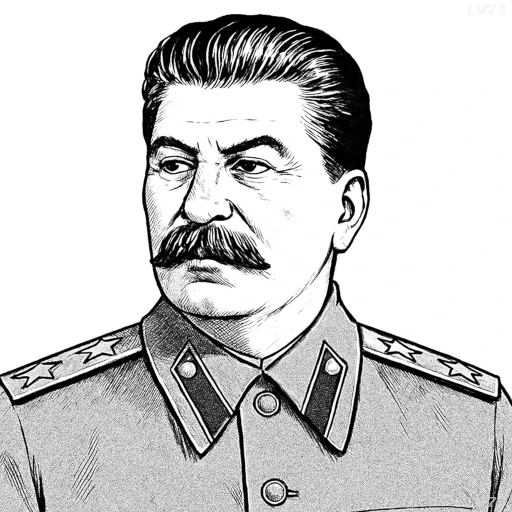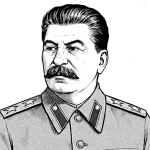“The Pope? How many divisions has he got?”

- December 18, 1878 – March 5, 1953
- Born in Georgia
- Politician
table of contents
Quote
“The Pope? How many divisions has he got?”
Explanation
This quote reflects Stalin’s disdain for the power of religious institutions, particularly the Catholic Church. By questioning the Pope’s military strength, Stalin was emphasizing that the authority of religious figures and institutions was irrelevant if they could not back their influence with military power. As a leader of a totalitarian regime, Stalin believed that force and military might were the ultimate measures of power, and he saw religion as a spiritual influence that lacked tangible authority in the material world. The quote illustrates Stalin’s pragmatic view of governance, where political and ideological power were to be determined not by moral or religious arguments, but by the control of resources, including military strength.
Historically, this quote is tied to the context of Soviet atheism, where the state sought to suppress religious institutions in favor of a secular, socialist ideology. Stalin’s regime aimed to undermine the influence of the church and other religious groups in Soviet society. Religious leaders and institutions were often targeted by the state for their perceived challenge to the authority of the Communist Party, which viewed itself as the supreme source of truth. The Pope, as the leader of the Roman Catholic Church, symbolized an institution that Stalin believed lacked the means to oppose his power, making it irrelevant in the face of Soviet military might.
In a contemporary sense, the quote can be seen as a reflection of the tension between political power and religious authority. It underscores how, in authoritarian regimes, religious figures and institutions are often viewed as a potential threat or distraction to state control. The quote also raises broader questions about the role of religion in politics and how political leaders might perceive or interact with religious institutions. In the modern world, it highlights the conflict between secularism and religious influence, particularly in places where political power seeks to dominate or control all aspects of society, including spiritual beliefs.
Would you like to share your impressions or related stories about this quote in the comments section?


